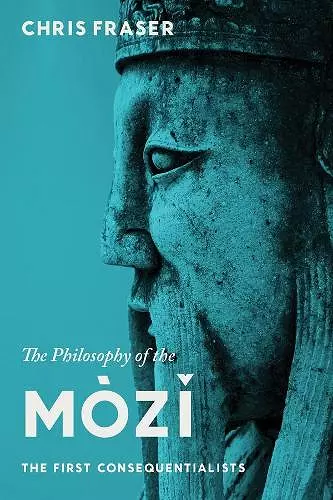The Philosophy of the Mòzĭ
The First Consequentialists
Format:Hardback
Publisher:Columbia University Press
Published:7th Oct '16
Currently unavailable, and unfortunately no date known when it will be back

This extensive study of Mohism explores its consequentialist ethics, political theories, and logical frameworks, highlighting its historical significance and relevance to modern thought, while immersing readers in the Mohist worldview.
The Philosophy of the Mòzĭ offers an in-depth exploration of Mohism, an influential ancient Chinese philosophical movement established in the fifth century BCE by the notable figure Mozi, also known as Master Mo. This study delves into the consequentialist ethics that Mohists championed, which remarkably anticipated Western utilitarianism by over two millennia. The book highlights how these ethical principles, alongside innovative political, logical, and epistemological theories, shaped the landscape of philosophical discourse in China for generations.
The text also examines the historical context of Mohism, tracing its rise and eventual decline during the imperial era. While it may have appeared less prominent compared to other philosophical traditions like Confucianism and Daoism, the book argues that a comprehensive understanding of these latter schools is incomplete without acknowledging the foundational contributions of Mohist thought. The authors emphasize the significance of Mohism in establishing early doctrines, such as just war theory and the concept of government emerging from a state of nature.
Moreover, The Philosophy of the Mòzĭ underscores the relevance of Mohist ideas to contemporary philosophical discussions. By immersing readers in the Mohist worldview, the book not only presents the principles and practices of Mohism but also offers compelling alternatives to modern Western mentalism, enriching our understanding of ethics, politics, and human thought across cultures and eras.
Not only the best study of the philosophy of the Mozi, but one of the best studies of any classical Chinese philosopher. -- Franklin Perkins, author of Heaven and Earth Are Not Humane: The Problem of Evil in Classical Chinese Philosophy Fraser is at his best and his most original in arguing for an interpretation of Mohist ethical theory as an early consequentialism that builds upon his own careful and persuasive explication of a Mohist philosophy of mind and action-a sui generis social psychology that has contemporary force in challenging the persistent subjective, individualist, and representational assumptions of our old common-sense psychology. -- Roger T. Ames, author of Dao De Jing: A Philosophical Translation Fraser's book is charitable-persuasively rebutting many standard criticisms of the Mohists-and yet critically engaged with the details of the Mohists' provocative positions. The philosophical study of the Mozicomes of age in this outstanding book. -- Stephen C. Angle, author of Sagehood: The Contemporary Significance of Neo-Confucian Philosophy Fraser is a gifted writer and expositor. Mo Di was not only the first consequentialist but also the first just war theorist, the first critic of extravagant ritual, the first critic of family-first ethics, and the first philosopher to offer what analytic philosophers would count as rigorous arguments. A must read for analytic philosophers who work in ethics and political philosophy. -- Owen Flanagan, author of The Geography of Morals: Varieties of Moral Possibility
- Winner of Choice Outstanding Academic Title 2017
ISBN: 9780231149266
Dimensions: unknown
Weight: unknown
320 pages